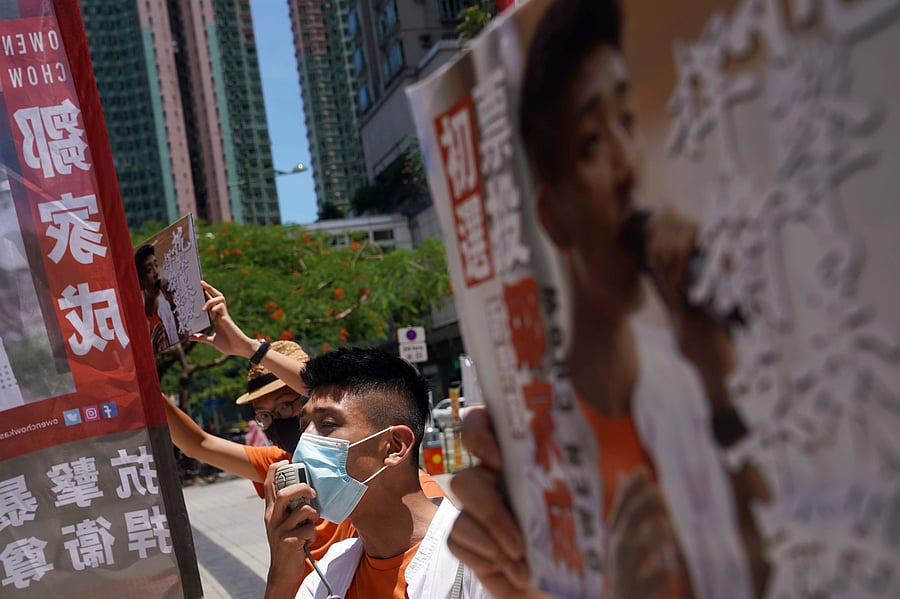
While the pandemic rages on, the Chinese leadership in Beijing has tightened its control over Hong Kong. Earlier in 2019, the region saw fierce protests take place regarding an extradition bill. Now, Chinese lawmakers have voted to adopt the Law of the People's Republic of China on Safeguarding National Security in the Hong Kong Special Administrative Region.
The law came into force by being added to Annex III of the Basic Law (de facto Constitution of Hong Kong) and hence was not debated in Hong Kong’s legislature. There had been plenty of speculation about the dynamics of the move and how that reflects on China itself. But since the law has been put into place, it has met with sharp responses, especially within the tech community.
There are multiple provisions within the new National Security Law that grant law enforcement agencies powers to censor speech on the internet and track citizens online, and to do so under a broad ambit of reasons. TechCrunch carried out an excellent analysis here. While there is a lot of fine print to go into, the broad strokes here are that the law has chilling implications for free speech. Soon after being enforced, it was used as a justification to arrest protesters.
‘Pausing’ data requests
That the internet is also going to be a medium to enable these arrests has not gone down well with Silicon Valley. Tech companies generally share data with states when it comes to national security. Generally, there is plenty of government machinery involved on both sides to make the process possible.
Since the law has been put in place, Facebook (including WhatsApp), Twitter, Google, Zoom, and Microsoft, have “paused” data requests from the Hong Kong authorities. Even TikTok, owned by Chinese parent ByteDance, has claimed that it will exit the region in the coming days.
While TikTok has been talking about pulling out, the pause is an interesting response from big tech. From the press releases of most of these companies, the messaging is that the law seems to be fairly draconian and has the ability to potentially limit free speech. But apparently, it is too early to make a decision since implications of the law are yet to be fully understood. Hence, at the moment, the arrangement is on hold. Should things not be as bad as they seem, companies may choose to reverse the decision and come back to Hong Kong (while complying with Chinese demands of course).
Big tech’s mixed record in China
The situation might seem drastic, but this is actually a familiar trade-off for Silicon Valley. China has always been an ethical black hole that tech companies keep dipping their fingers into, and do not always come out of the other side clean. For instance, Google faced this problem a few years ago and (in)famously gave up on China. Considerations at the time were more than just ethical and are well explained in Steven Levy’s In the Plex. Similarly, despite its holier than thou attitude, Apple has shared web browsing data with TenCent, removed apps in Hong Kong on the direction of the Chinese state, and has moved iCloud data (along with its digital keys) to state-run Chinese servers.
That Google’s Search decided to leave and Apple decided to stay in China tells us that it is hard to predict how tech companies might end up reacting. The implications of the National Security Law seem clear from the outset. China is already using the law to undermine democratic political parties in Hong Kong. But that does not mean tech companies will necessarily use that as a rationale to stop offering assistance to authorities in Hong Kong. There is every chance that they might be okay with continuing profitable operations at the cost of facing backlash at home.
A precedent for India?
Time will tell how tech companies respond to the law. Yet, not all tech companies are going to resume their services. And the important thing is that refraining from being a part of Hong Kong’s tech ecosystem is going to set a precedent for India.
The Ministry of Electronics and Information Technology (MEITY) was supposed to update the Intermediary Guidelines earlier this year. That is yet to happen thanks to the pandemic. At the risk of losing all nuance, the Intermediary Guidelines are the regulatory framework that defines how liable platforms like Instagram should be for content that users post on them. Granted, the Intermediary Guidelines themselves are a lot narrower than the Chinese National Security Law and are not meant to chill speech in a particular region.
Instead, the worrying bit is that much like China’s new national security law, the intermediary guidelines do not exist with enough procedural safeguards or oversight. In simpler terms, it means that we do not know how often the State can use this regulation to limit speech and track the origins of messages. This is especially concerning as a section of the guidelines also talks about enabling traceability.
Since the amendments to the Intermediary Guidelines were introduced, people have argued that platforms that use end-to-end encryption (like WhatsApp) might have an incentive to leave should MEITY go ahead with the current version. As it turns out, Hong Kong’s experience may be an excellent case study to prove them right.
(Rohan Seth is a technology policy analyst and Manoj Kewalramani is Fellow-China Studies at The Takshashila Institution, Bengaluru)
Disclaimer: The views expressed above are the authors’ own. They do not necessarily reflect the views of DH.